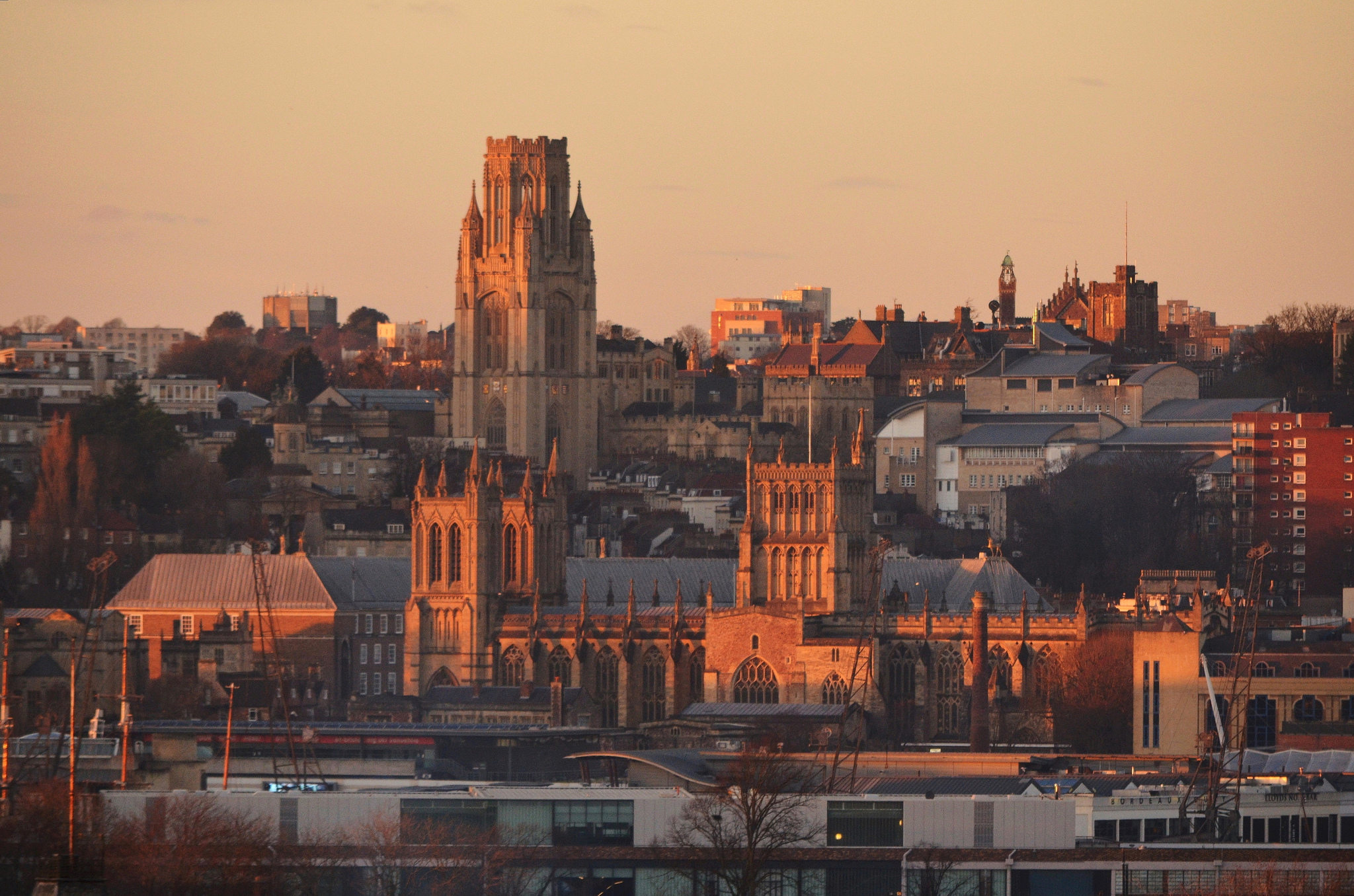Every summer, renowned street artists from around the world descend on Bristol to take part in Upfest, Europe’s largest street art and graffiti festival. Most years, they defy the rain and wind to splash colour across the city – against a backdrop of booming music, dancing cagoules and vibrant street food.
The festival is just one example of the city’s “extraordinary culture”, which led The Sunday Times to crown Bristol “The Best Place to Live in 2017”. From ‘the birthplace of America’ to Tony from Skins, we’ve put together a list of the ways Bristol has helped to protect and advance our human rights – and it goes beyond the right to take part in culture.
The Bristol bus boycott
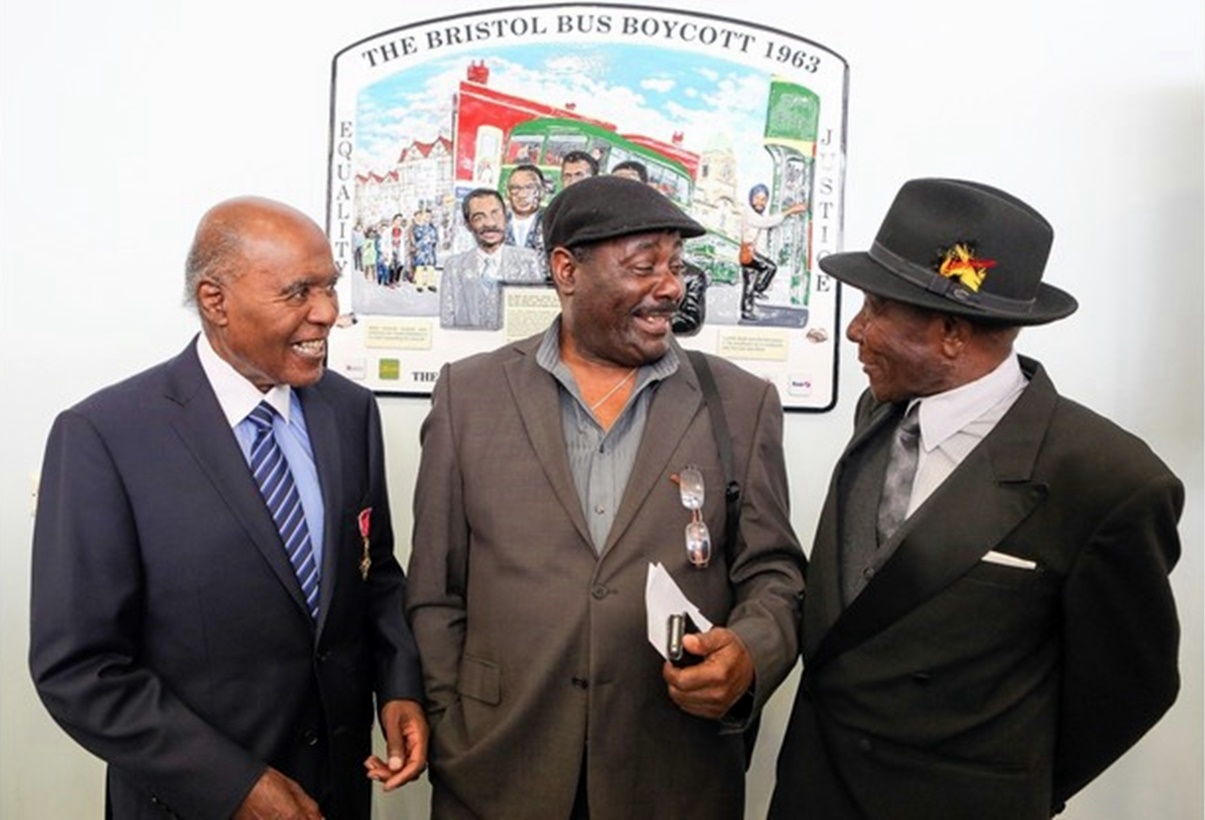
Paul Stephenson with fellow campaigners.Image: Paul Townsend / Flickr
There is an adage that every brick in Bristol is cemented with the blood of a slave – a reference to its historic role in the transatlantic slave trade. While this shameful legacy (slavery is now prohibited under Article 4 of the Human Rights Convention ) continues to haunt Bristol, the city’s pivotal role in the UK’s civil rights movement is lesser known.
In 1963, Paul Stephenson, a British African youth worker, organised a 60-day bus boycott. Inspired by the story of Rosa Parks in the US, the boycott was in response to a “colour bar” implemented by Bristol Omnibus Company, the city’s main bus company.
The bar, which was endorsed by the then Transport and General Workers’ Union (now Unite), meant that only white people could be employed as drivers or conductors. By organising and galvanising national support for the boycott, Stephenson forced Bristol Omnibus Company to abandon its policy and employ people on the basis of merit, not colour.
The impact of the boycott did not end there. Arguably, it paved the way for the Race Relations Act of 1965 – the first UK law to ban racial discrimination in public places. It’s also now probhibited to discriminate on the grounds of race under Article 14 of the Human Rights Convention.
Tony Benn and parliamentary democracy
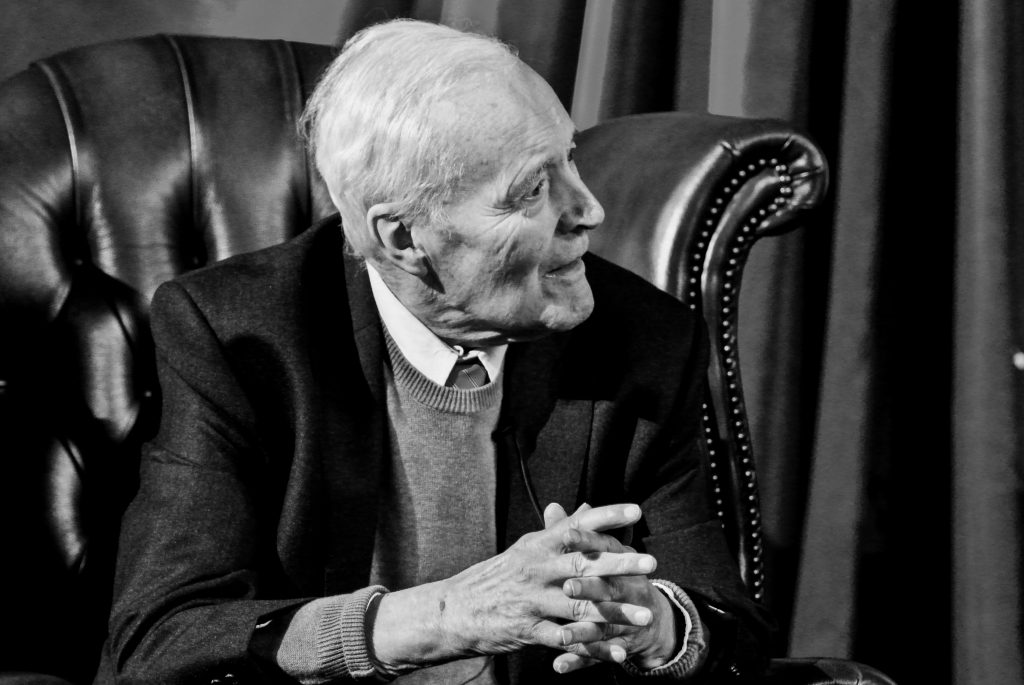
Image: Chris Boland
One prominent supporter of the Bristol bus boycott was Tony Benn. The MP for Bristol South East for more than 33 years, the late Benn is considered one of Britain’s foremost socialists.
Irrespective of his political leaning, however, Benn was a staunch believer in democracy. Democracy itself is enshrined in our rights, with the right to free and fair elections set out in Protocol 1 of the Human Rights Convention. He campaigned for the right to renounce his hereditary title as a Lord and famously defended Parliament’s right to see a banned BBC documentary, which exposed the Government’s concealment of £500m in military spending (the Zircon Affair).
While he delivered many memorable and eloquent speeches, it was during his final speech to the House of Commons that he shared his “five little democratic questions”:
“If one meets a powerful person”, he suggested, “ask them five questions: “What power have you got? Where did you get it from? In whose interests do you exercise it? To whom are you accountable? And how can we get rid of you?” If you cannot get rid of the people who govern you, you do not live in a democratic system.”
Street Art, Satire and Banksy
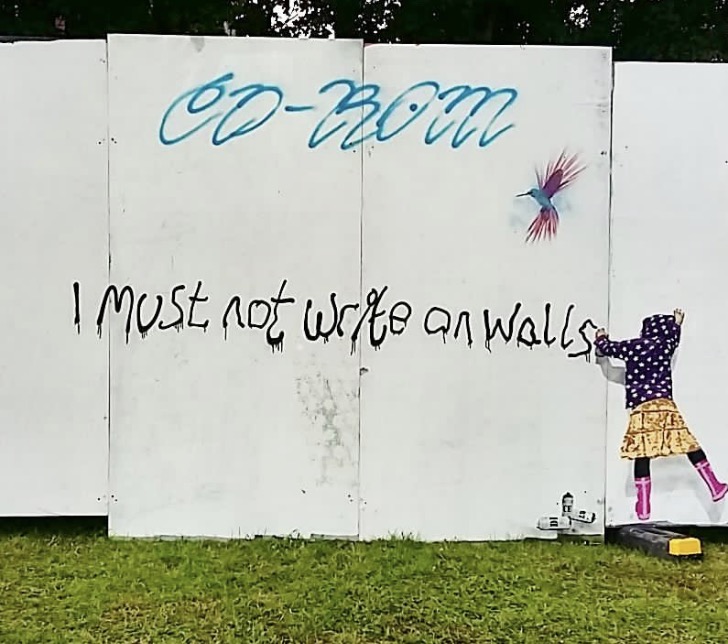
Image: Upfest 2017 / Cate Brown
Intertwined with democracy is our right to hold and voice opinions that may be unpopular with those in power – including in print, film, music and art.
Banksy, the anonymous and world-famous street artist, originated in Bristol. Many of his murals can still be seen in the city, which hosted a one-off exhibition of his work in 2009. In 2015, “Dismaland”, Banksy’s dystopian take on Disney World, arrived in nearby Weston-super-Mare. Through satire, the exhibition referred to rising social inequality, police brutality and the plight of refugees arriving in Europe.
Banksy’s work not only represents freedom of expression, a right laid down in Article 10 of the Human Rights Convention, but creativity. Funnily enough, respecting creative freedom and allowing participation in culture is a human right laid down in Article 15 of the UN’s International Covenant on Economic, Social and Cultural Rights. Well, now you know.
A city of culture
Bristol’s culture extends beyond Banksy and graffiti-inspired festivals.
Local comedians include John Cleese, Stephen Merchant, Russell Howard and Lee Evans, while Harry Potter author J. K. Rowling and Hollywood legend Cary Grant are among the city’s other greats.
Add the alumni of Bristol University into the mix and the list goes on, from Little Britain’s Matt Lucas and David Walliams to authors David Nicholls (One Day) and Julia Donaldson (The Gruffalo).
No wonder The Sunday Times summed up the city as “cool, classy and supremely creative.”
Green revolution
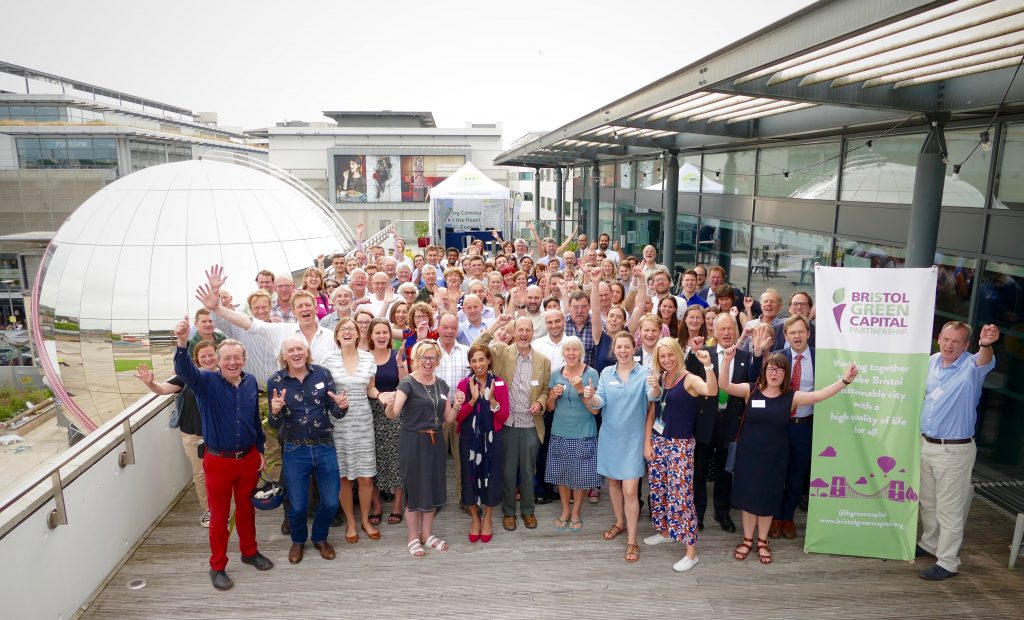 Image Credit: Bristol Green Capital
Image Credit: Bristol Green Capital
When Mary Robinson, the former UN High Commissioner for Human Rights, delivered a Ted Talk in 2015, she referred to the “greatest threat to human rights in the 21st century”: global warming.
Not only does it represent the “greatest existential threat” to mankind, Robinson also warned that climate change interferes with the right to food, water, health, education and shelter, that is economic, social and cultural rights.
As the UK’s first city to receive the status of European Green Capital in 2015, Bristol is a pioneer of all things green.
It originally set out to reduce carbon emissions by 80 per cent by 2050, but by 2015, the city was five years ahead of where it needed to be in order to achieve this goal. A more ambitious target to become carbon neutral by 2050 was therefore set, backed by the city’s investment in low carbon industries and digital technology.
Keep up the hard work, Bristol.

